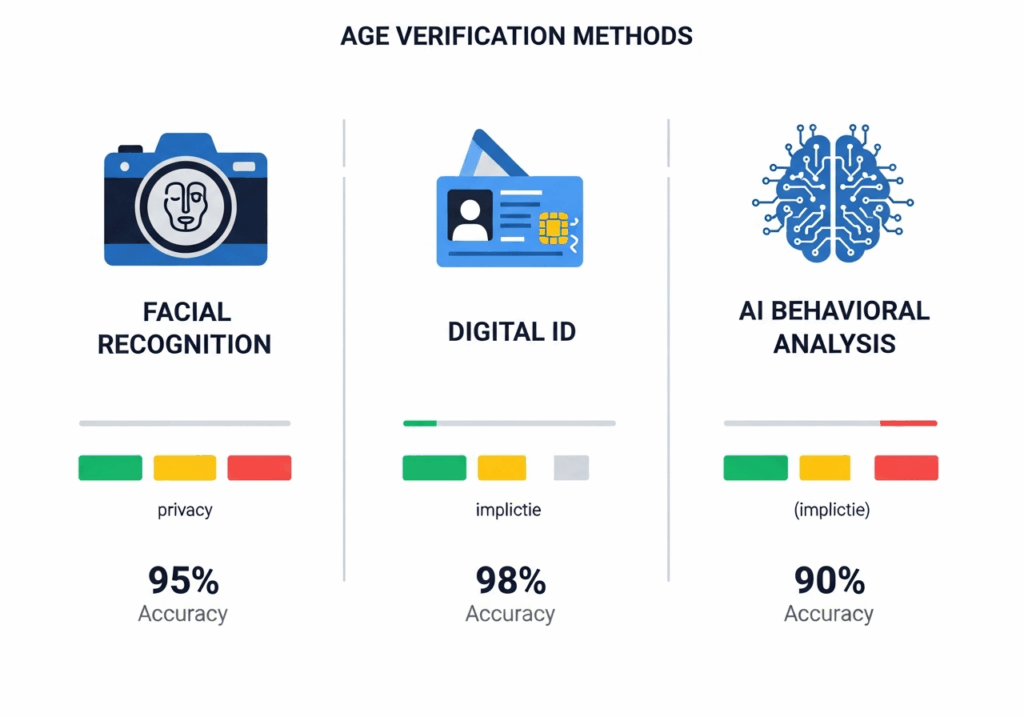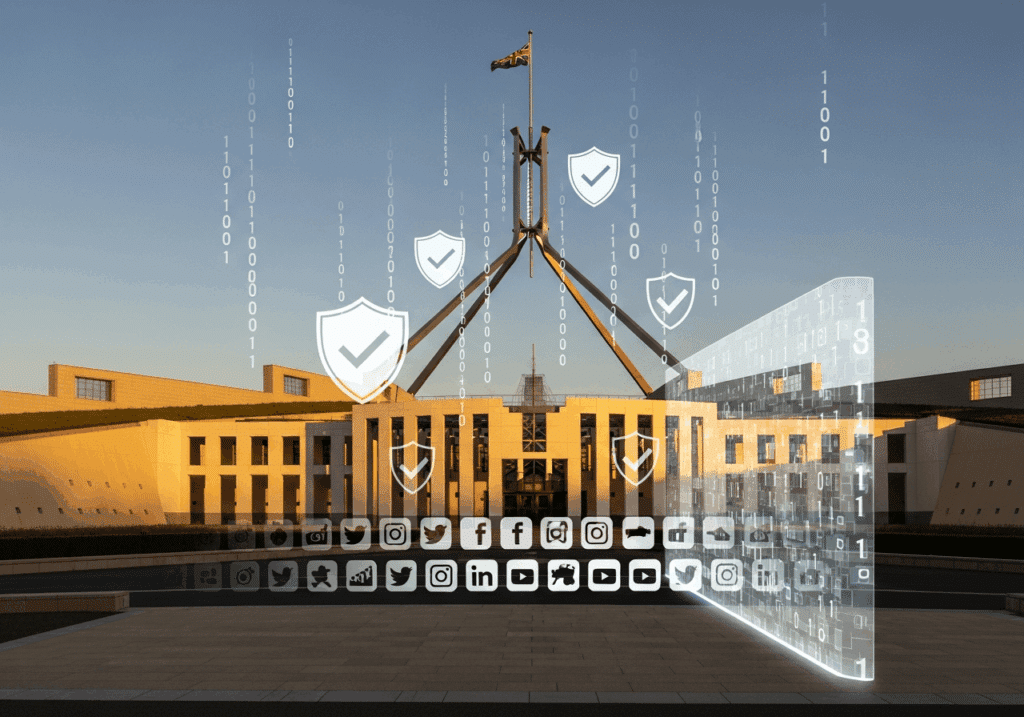Policy Expansion: Reddit Joins Australia’s Under-16 Social Media Ban
Australia has officially extended its landmark under-16 social media ban to include Reddit and Kick, alongside existing restrictions on TikTok, Instagram, Facebook, Threads, X (formerly Twitter), Snapchat, and YouTube. The addition was announced on 5 November 2025 by Communications Minister Anika Wells, expanding coverage under the Online Safety Amendment (Social Media Minimum Age) Act 2024—the world’s first law of its kind.
Under this groundbreaking legislation, social media firms must take “reasonable steps” to prevent under-16s from opening accounts. Non-compliance can trigger civil penalties up to A$49.5 million (approximately US$33 million). The law represents Australia’s commitment to protecting children in the digital age while setting global precedent for youth online safety.
eSafety Commissioner Julie Inman Grant will oversee enforcement beginning 10 December 2025. The commissioner emphasized that the platform list will evolve with emerging technologies, ensuring the legislation remains relevant as digital landscapes change.
“Online platforms use technology to target children with chilling control,” Wells told reporters in Canberra. “We are mandating they use that sophisticated technology to protect them.”
Implementation Challenges: Age Verification Technology and Privacy Balance

The legislation’s success hinges on age-verification technology—a complex challenge balancing accuracy with privacy protection. Industry experts have identified three primary approaches, each with distinct advantages and limitations.
Age Verification Methods Under Consideration
Facial Age Estimation Technology
Advanced AI systems can estimate age through facial analysis with increasing accuracy. However, this method raises significant privacy concerns, particularly regarding biometric data collection and storage. Critics worry about potential surveillance implications and data security risks.
Digital Identity Integration
Services like MyGovID offer high accuracy in age verification by linking to government databases. While reliable, this approach faces resistance due to privacy concerns and the requirement for users to share official identification for social media access.
AI Behavioral Analysis
Machine learning models can analyze user behavior patterns, language use, and interaction styles to estimate age. This method offers lower friction for users but provides less reliable results, potentially allowing determined underage users to circumvent restrictions.
The eSafety Commissioner clarified that companies are not required to verify every user’s age. Instead, platforms must demonstrate robust, reasonable systems designed to identify and exclude under-16s while offering alternative verification methods for users who cannot or prefer not to provide government identification.
For major platforms, compliance costs are expected to reach millions of dollars in infrastructure upgrades and ongoing monitoring systems. Industry analysts predict significant growth in RegTech (regulatory technology) providers specializing in age assurance solutions.
Global Impact: Australia’s Policy Framework as International Template

Australia’s comprehensive approach is drawing intense international scrutiny as governments worldwide grapple with similar youth protection challenges.
United Kingdom Response
The UK’s Online Safety Act 2023 requires platforms to conduct risk assessments but stops short of mandating specific age restrictions. Parliamentary discussions increasingly reference Australia’s model as a potential blueprint for strengthening existing regulations.
Digital rights advocates in the UK have expressed mixed reactions, with some praising Australia’s decisive action while others warn of potential freedom of expression implications.
European Union Considerations
Under the Digital Services Act, Brussels emphasizes transparency and parental controls rather than outright age bans. However, European Commission President Ursula von der Leyen publicly praised Australia’s “common sense” approach at a United Nations forum in September 2024.
EU lawmakers are closely monitoring implementation results, with several members suggesting Australia’s experience could inform future Digital Services Act amendments.
United States State-Level Interest
Multiple U.S. states, including California and Utah, are drafting legislation that references Australia’s “duty of care” standard in new child safety bills. If Australia’s rollout demonstrates effectiveness without major privacy violations, federal youth protection legislation may gain momentum in Washington.
The parallels to GDPR’s global influence are striking—Australia’s age verification requirements could establish international standards for youth digital protection, much as European privacy law reshaped global data practices.
Platform Response: Tech Industry Adaptation and Compliance Strategies
Social media companies are taking varied approaches to comply with Australia’s requirements, reflecting different business models and user bases.
Meta (Instagram/Facebook): Expanding existing Family Center parental oversight tools while developing new age verification interfaces. The company is testing AI-powered detection systems that analyze account creation patterns and user behavior.
TikTok: Implementing enhanced AI age-detection filters and exploring options for users to temporarily suspend accounts rather than permanent deletion. The platform is also developing data archival tools for affected users.
YouTube: Leveraging experience from YouTube Kids to create age-appropriate access controls. Google’s parent company is integrating compliance features across its ecosystem of services.
Reddit: The platform faces unique challenges due to its pseudonymous culture and community-based moderation. Reddit is developing geographically-based restrictions and exploring tiered access levels that maintain user anonymity while ensuring compliance.
Kick: As a newer platform with fewer resources, Kick has indicated it may implement geo-blocking for Australia if compliance costs exceed revenue potential—a warning that could affect smaller platforms globally.
Industry experts note that compliance pressures mirror those seen in other regulatory environments, from AI governance requirements to semiconductor export controls, highlighting the growing intersection of technology and international policy.
Youth Safety Debate: Balancing Protection and Digital Rights

The legislation has sparked intense debate among experts, advocates, and affected communities about the appropriate balance between protection and access.
Supporting Evidence
Research supporting the restrictions points to concerning mental health trends among young social media users. The Australian Psychological Society reports that one in three teenagers experiences serious distress linked to social media use, including anxiety, sleep disruption, and cyberbullying.
Dr. Rebecca Ellis from the University of Melbourne argues that “delaying social media access provides crucial developmental time for building emotional resilience and real-world social skills before encountering algorithmic manipulation.”
Studies have also highlighted the addictive design elements of major platforms, including infinite scroll features, variable reward schedules, and algorithmic content curation specifically designed to maximize engagement time.
Privacy and Rights Concerns
Critics raise substantial concerns about implementation methods and broader implications. The Human Rights Law Centre argues that blanket age restrictions could conflict with international children’s rights treaties, particularly regarding access to information and freedom of expression.
Privacy advocates worry that mandatory age verification systems could normalize digital surveillance and create new risks for data breaches. The requirement to collect and verify age information potentially expands the digital footprint of all users, not just children.
Some technology experts question the technical feasibility of effective enforcement. Representatives from X (formerly Twitter) have described the verification requirements as “technically unworkable” given the global nature of internet platforms and the sophistication of circumvention methods.
These concerns echo broader debates about technology governance, similar to discussions around AI safety measures and digital platform accountability that are reshaping technology policy worldwide.
Future Precedent: Blueprint for Global Youth Digital Protection

Australia’s legislation may establish several precedents that influence international technology governance:
Enforceable Corporate Responsibility
The law shifts liability for youth safety directly to platform operators rather than individual users or parents. This “duty of care” model could influence corporate responsibility standards globally.
Flexible Technology Requirements
Rather than mandating specific technical solutions, the legislation requires “reasonable steps” tailored to each platform’s capabilities and user base. This approach allows for innovation while maintaining accountability.
Privacy-Preserving Compliance
Requirements for data destruction after age verification and alternative identification methods demonstrate that privacy protection and safety measures can coexist.
International Regulatory Coordination
As platforms operate globally, Australia’s experience will inform how other jurisdictions can implement similar protections without creating conflicting compliance requirements.
The legislation reflects broader trends in technology governance, from AI safety initiatives to digital platform accountability measures, suggesting a shift toward more active government oversight of technology’s societal impact.
Key Implementation Details
| Element | Specification |
|---|---|
| Legislation | Online Safety Amendment (Social Media Minimum Age) Act 2024 |
| Effective Date | 10 December 2025 |
| Minimum Age | 16 years (no parental consent exceptions) |
| Covered Platforms | Facebook, Instagram, Snapchat, Threads, TikTok, X, YouTube, Reddit, Kick |
| Maximum Penalty | A$49.5 million (~US$33 million) |
| Regulator | eSafety Commissioner Julie Inman Grant |
| Verification Requirement | “Reasonable steps” – platforms choose methods |
| Privacy Protection | Mandatory data destruction post-verification |
| User Impact | No penalties for individuals or parents |
Looking Ahead: Implementation and Global Influence
Australia’s decision to include Reddit and Kick represents more than regulatory expansion—it signals a comprehensive approach to reshaping how young people interact with digital platforms. The legislation’s emphasis on corporate responsibility, privacy protection, and flexible compliance methods offers a potential model for balancing technological innovation with youth protection.
The global technology industry is watching closely as December 2025 approaches. Successful implementation could establish Australia as a leader in digital governance, influencing policy development across democratic nations facing similar challenges.
For social media companies, the Australian model represents both challenge and opportunity—the chance to develop more responsible engagement practices while maintaining profitable operations. The compliance strategies developed for Australia may become templates for global platform governance.
As digital natives increasingly dominate global demographics, Australia’s experiment in age-based platform restrictions could define how societies balance technological access with developmental protection for generations to come.
Related Coverage from Sezarr Overseas News
- Social Media Age Verification: Global Technology and Privacy Trends
- Digital Rights vs. Child Protection: International Policy Balance
- Technology Regulation 2025: From AI to Social Media Governance
- Australia’s Digital Policy Leadership: Global Influence and Innovation
Sources and Attribution
- Reuters: “Australia includes Reddit, Kick in teen social-media ban” (5 November 2025)
- Associated Press: “Australia adds Reddit to under-16 ban list” (5 November 2025)
- ABC News Australia: “Reddit and Kick added to Australia’s child social media ban” (5 November 2025)
- Euronews: “Australia adds Reddit and Kick to world-leading social media ban” (5 November 2025)
- Australian Parliament: Online Safety Amendment (Social Media Minimum Age) Act 2024
- eSafety Commissioner: Official implementation guidance and regulatory statements
- Prime Minister of Australia: “Social media reforms to protect our kids online pass Parliament” (November 2024)
Disclaimers and Legal Information
Editorial Policy: This article provides factual reporting and analysis for informational purposes only and does not constitute legal, financial, or regulatory advice.
Accuracy Statement: All facts, figures, and quotes are sourced from official government releases, verified news organizations, and reputable industry sources as of 11 November 2025.
Forward-Looking Information: Some sections contain analysis and predictions based on available data and expert opinion. Actual regulatory outcomes, technology developments, and industry responses may differ from projections.
Editorial Independence: Sezarr Overseas News maintains complete editorial independence and has no financial relationships with the companies, platforms, or government agencies mentioned in this article.
Regulatory Guidance: Readers requiring specific compliance advice should consult official Australian government sources, qualified legal counsel, or relevant regulatory experts.
Copyright and Attribution: This content is original journalism. Reproduction requires permission and proper attribution to Sezarr Overseas News.